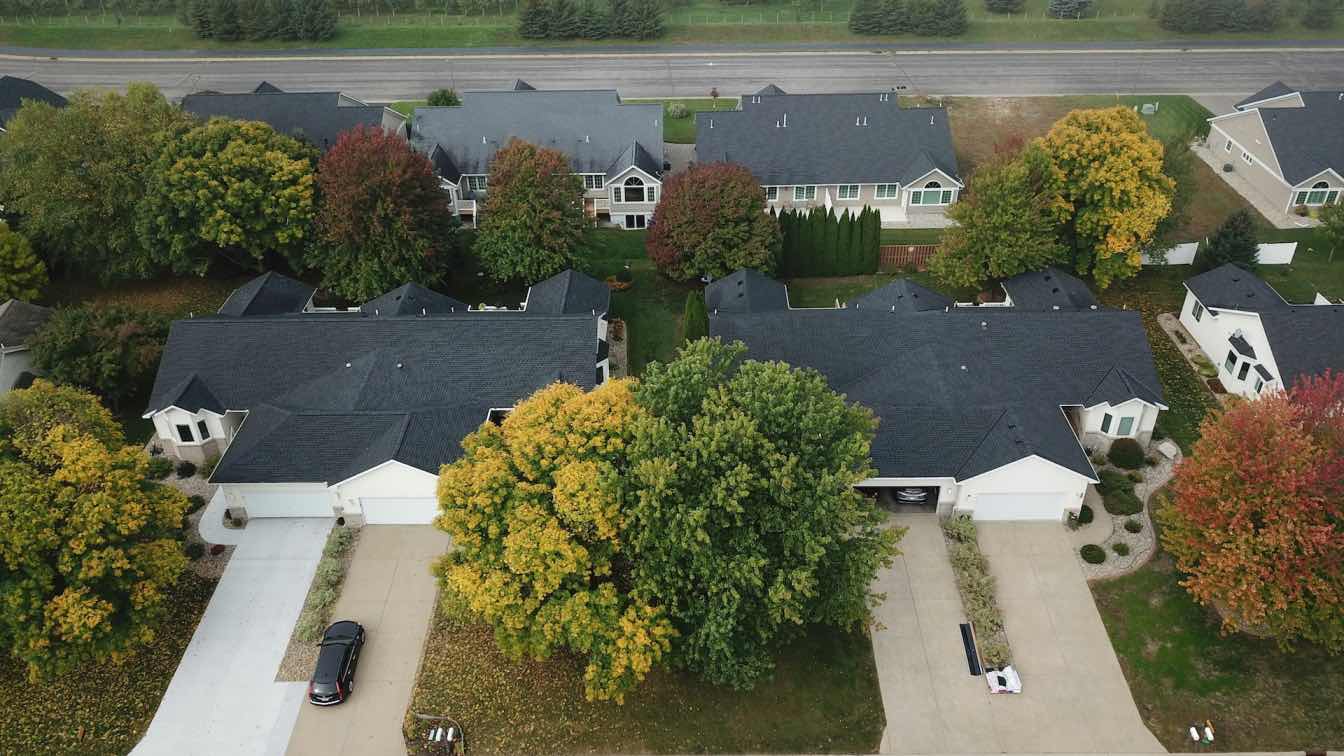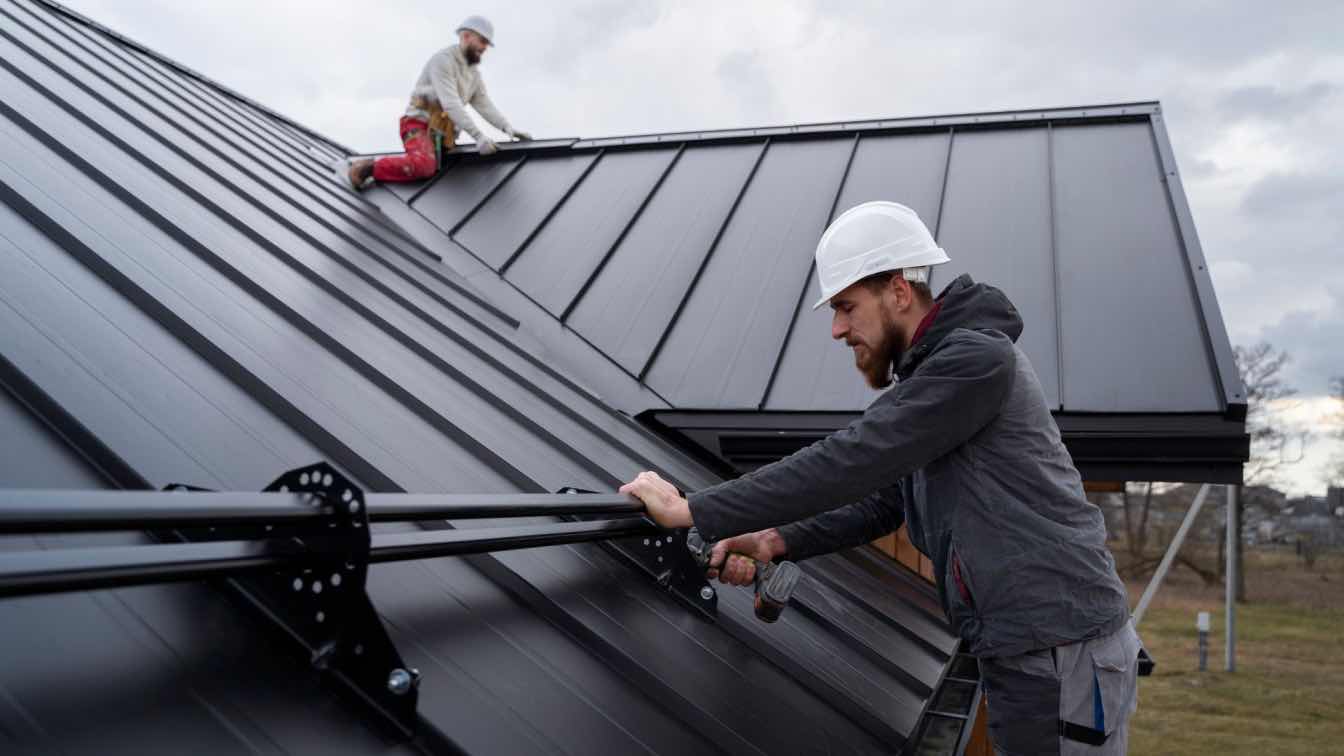So, you’re thinking about hiring a roofing contractor.
Maybe your roof needs some repair, or you’re planning a full replacement.
Whatever the case, knowing who will work on such a crucial part of your home is important.
After all, the roof keeps you, your family, and your belongings safe from the elements.
But how do you know if a contractor is the real deal?
With so many options available, it’s easy to feel overwhelmed. Many reputable contractors offer free estimates to help you understand your roofing needs without any obligation.
In this guide, we’ll discuss some common red flags to watch out for and tips to help you find a contractor who’s not only good at what they do but also trustworthy and qualified.
Let’s get into it!
1. Understanding Roofing Contractors
1.1 The Role of a Roofing Contractor
A roofing contractor plays a crucial role in ensuring the integrity and durability вof a building’s roof. Their primary responsibility is to assess, install, repair, and maintain roofing systems, ensuring they are safe, functional, and aesthetically pleasing. Roofing contractors work with various roofing materials, including asphalt shingles, metal, slate, and tile, to provide customized solutions for residential and commercial buildings. Whether it’s a minor repair or a complete roof replacement, these professionals ensure that the roof remains in top condition, protecting the structure and its occupants from the elements.
1.2 Types of Roofing Services Offered
Roofing contractors offer a wide range of services to meet the diverse needs of their clients. These services include roof installation, roof repair, and roof replacement. They also provide essential maintenance services, such as gutter cleaning and siding services, to ensure that the entire exterior of a building is well-maintained. Additionally, roofing contractors may offer specialized services like waterproofing and insulation, which enhance the energy efficiency and durability of a building’s roof. By offering comprehensive roofing services, contractors help homeowners maintain an aesthetically pleasing roof that performs well under various weather conditions.
1. Why Hiring a Qualified Roofing Contractor Matters
A roof isn’t just about shingles or tiles; it’s about protecting your home’s integrity and value.
A qualified roofing contractor brings experience, proper licensing, and insurance, which translates to quality work and peace of mind.
A trustworthy ID Flat Roof Company - Roofers in Boston contractor will ensure that your roof is installed or repaired correctly, saving you time, money, and stress in the long run.
2.1 Benefits of Hiring a Reliable Contractor
Benefits of Hiring a Reliable Contractor for Quality Roofing
Quality workmanship that lasts
Protection for your home’s structure and your investment
Better warranties on materials and labor
Fewer unexpected costs from shoddy work or cheap materials, as contractors are responsible for assessing, installing, repairing, and maintaining roofing systems, including the construction of a new roof
2. Red Flags to Watch Out for When Hiring a Roofing Contractor
Now that we know why a good contractor is essential, let’s look at some common red flags that could signal a contractor might not be the best choice.
2.1 Lack of Proper Licensing or Insurance
Any reputable contractor should have both a business license and insurance. Roofing is risky work, and if someone is injured on your property, you could be held liable if they’re not insured.
If a contractor is hesitant or makes excuses about showing you their license or insurance details, consider that a major warning sign.
What to Do
Ask the contractor upfront for proof of their license and insurance. In some areas, you can even check licensing online to verify that they’re current.
2.2 Unusually Low Estimates
If you get an estimate that’s much lower than other quotes, it might seem like a great deal.
However, extreme lowball offers can often indicate that the contractor plans to cut corners, use subpar materials, or surprise you with hidden fees later.
High-quality work and materials come at a price, so be wary of offers that seem too good to be true.
What to Do
Get at least three estimates and compare them. Look beyond the price and consider the details included in each estimate, such as materials, labor, and warranty.
2.3 High-Pressure Sales Tactics
If a contractor is trying to push you into signing a contract right away or makes you feel rushed, it’s usually a bad sign.
Trustworthy roofing companies understand that choosing the right roofing company is a big decision, and they won’t pressure you. High-pressure tactics often hide poor quality or unprofessional practices.
What to Do
Take your time. A reliable contractor will give you time to make a decision, answer your questions, and address your concerns.
Don’t let anyone rush you into such an important commitment.
2.4 No Written Contract or Vague Terms
A professional roofing contractor will always provide a clear, written contract that outlines the scope of work, materials, timeline, costs, and warranty details.
If a contractor insists on a verbal agreement or doesn’t want to give specific terms, you could be left vulnerable if anything goes wrong.
What to Do
Insist on a written contract and read it carefully before signing. Make sure it covers everything from start to finish, including any promises made verbally.
2.5 Lack of Local References or Portfolio
A reliable contractor should be able to provide references from previous customers and examples of past work, ideally from within your area.
A contractor who can’t offer references may not have a good track record or could be hiding something.
What to Do
Ask for local references and look up reviews online. A quick search can reveal a lot about a contractor’s reputation.
2.6 Demands for Large Upfront Payments
Some upfront payments are common, but a contractor asking for a large percentage of the payment upfront—especially in cash—should raise eyebrows. This could indicate financial instability, or worse, a scam where the contractor disappears after collecting your money.
What to Do
Agree on a reasonable deposit (typically around 10-20%) and make payments in stages as the work progresses.
A reliable contractor won’t expect full payment until the job is completed to your satisfaction.
4. Qualities of a Trusted Roofing Contractor
4.1 Expertise and Experience
A trusted roofing contractor should have extensive expertise and experience in the industry. They should be knowledgeable about various roofing materials, installation techniques, and local building codes. They should also have a proven track record of completing successful roofing projects, with a portfolio of satisfied customers and positive reviews. Additionally, a trusted contractor should be certified by reputable organizations, such as the National Roofing Contractors Association (NRCA), and have the necessary licenses and insurance to operate in their state. This combination of knowledge, experience, and certification ensures that they can handle any roofing project with professionalism and skill.
Questions to Ask Potential Roofing Contractors
Asking the right questions can help you gauge a contractor’s professionalism and experience. Here are some essential questions to consider:
3.1 Are You Licensed and Insured?
Always ask to see a contractor’s license and proof of insurance. Confirm that they have both general liability insurance and worker’s compensation coverage.
What’s Your Experience with Roof Replacement?
Not all roofers are experienced with every type of roofing material. Whether you have asphalt shingles, metal, tile, or another material, make sure the contractor has experience with it.
3.3 Can You Provide a Detailed Estimate?
A professional contractor will offer a clear estimate that breaks down costs for materials, labor, and any additional expenses.
This should include specifics on the materials they plan to use and the timeline for completion.
3.4 What Warranties Do You Offer?
Reliable contractors offer warranties that cover both materials and workmanship. Ask about the duration and what exactly the warranty includes.
4. How to Verify a Contractor’s Reputation
A contractor’s reputation is one of the best indicators of reliability. Here are some ways to verify their background:
4.1 Check Online Reviews
Sites like Google, Yelp, and the Better Business Bureau (BBB) provide valuable insights into past customer experiences. When selecting top roofing contractors, ensure they have extensive expertise and experience in the industry.
Look for trends in reviews rather than focusing on single negative or positive comments.
4.2 Ask for a List of Recent Clients
A reputable contractor should have no issue providing a few recent references.
Talking to these customers can give you an idea of the contractor’s work quality, communication, and timeliness.
4.3 Look for Industry Certifications
Some contractors have certifications from roofing material manufacturers, which indicates they’re trained and knowledgeable in specific materials. This can add an extra layer of trustworthiness.
5. Finalizing Your Choice
After doing your research, comparing estimates, and asking questions, it’s time to make a decision. Choose a contractor who:
Provides transparent and clear estimates
Offers a solid warranty on both materials and labor
Communicates effectively and answers your questions
Has a strong track record with local references and positive reviews
6. The Importance of Trust in Roofing Work
Your roof is one of the most critical parts of your home, and hiring the right contractor means peace of mind for years to come.
Take your time with the process, and don’t settle for anyone who makes you feel uncomfortable.
Finding a qualified, trustworthy professional may take a little effort, but it’s worth it for the security of knowing your home is in good hands.
Conclusion
Choosing the right roofing contractor isn’t just about finding someone who can do the job; it’s about finding a partner who values quality, integrity, and trust. Your roof is a significant investment that impacts your home’s safety, comfort, and value.
By watching out for red flags and doing some homework, you can avoid costly mistakes and ensure you’re hiring someone truly qualified. Remember, the best contractors prioritize clear communication, solid warranties, and transparency in their work.





